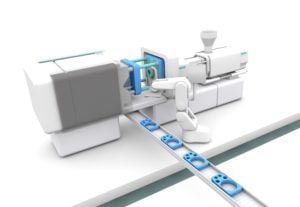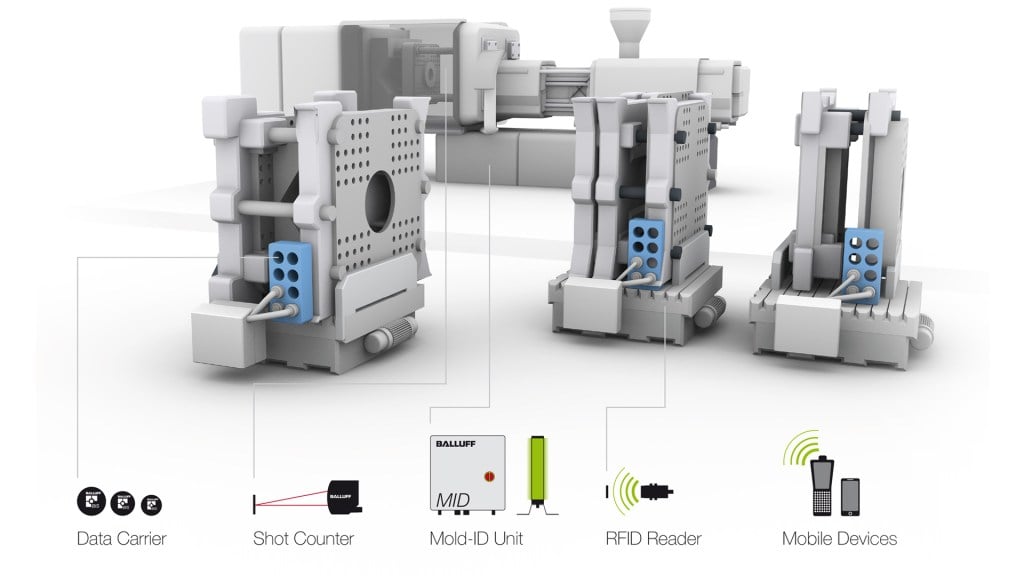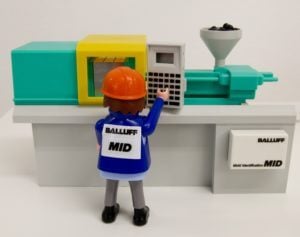White paper: Mold Management with RFID for Injection Molding – A Step to Industry 4.0
The terms Industry 4.0, Big Data and the Industrial Internet of Things (IIoT) are now on everyone’s lips.
They describe the intelligent networking of extremely diverse areas in industry.

Objective of this White Paper
This white paper aims at using the example of manufacturing plastics with injection molding machines to describe how Industry 4.0 can quite easily gain entry into production, make processes more efficient and minimize costs.
But efficiency here does not mean simply collecting data to the end of knowing how many parts were produced. Rather, it means ensuring on a daily basis that the scheduled capacity is in fact exhausted and the existing resources are optimally used.
Furthermore, simple stocktaking and better and faster location of the molds should also be enabled.
The molds and tools used in manufacturing plastic parts are usually very complex and expensive. They are subject to wear and contamination and require regular care, cleaning and maintenance. Unfortunately, this care is often neglected due to lack of time and the associated effort and expense; likewise the documentation of mold data, which often has to be entered by hand in mold sheets or books, a time-consuming hassle. Moreover, these manual processes are also error-prone and lead to problems ranging from trouble with equipping all the way to mold breakage.
Components of the system

An initial goal is to reduce the effort for manual documentation or automate it,
which now is no longer a problem using RFID data carriers.
Such data carriers, the “memory” of the mold, can now be read using a commercially available smartphone with Near Field Communication (NFC) and turn every mold into a “smart mold”.
Automated mold management of injection molds in manufacturing also eases preventive maintenance, reducing unexpected and costly production downtimes,
which in turn makes planning for the available resources more accurate. Usually such solutions can be used by means of MES software, but only for newer, networked machines, and often for a specific manufacturer.
The option described in the following is meant to show a universal, non-proprietary solution that can be retrofitted without modifying the machine control system.
This is not an isolated solution, but a future-proof, expandable modular concept,
with the outcome being a comprehensive lean production solution.
Find here the latest information on the Mold-ID system on our website in English and German
Industry-Flyer Plastic & Rubber in English
Industry-Flyer Kunststoff & Gummi
Here is an animated video on this application:
And here are two more videos on automated tool changes for injection moulding machines:
EAS Change Systems – Quick Mold Change
Stäubli QMC using Balluff BIS-M RFID System

























